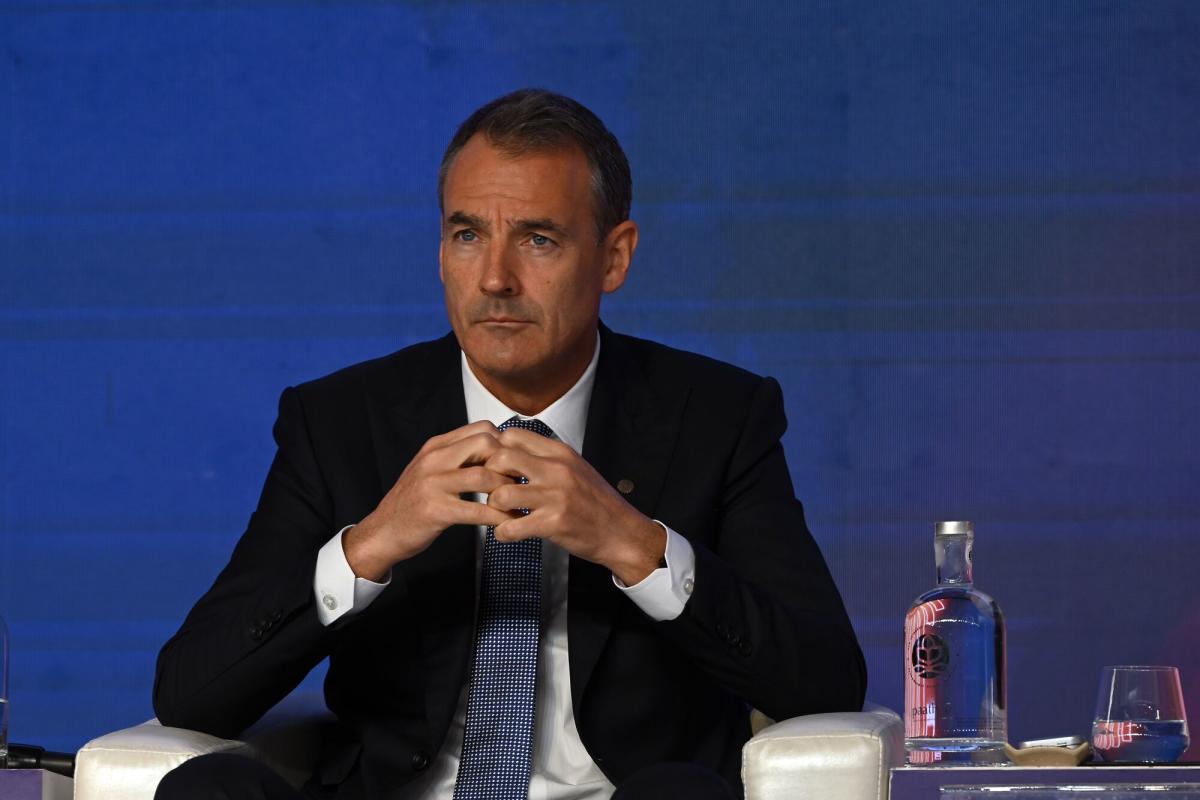[ad_1]
Federal stabilization funds that assist childcare facilities amid the pandemic expire on Sept. 30. With out these funds, specialists say, the childcare trade might face dire hardships that in flip create devastating financial penalties for suppliers, working mother and father and the nation’s total financial system.
Childcare “is a vital financial improvement challenge on Lengthy Island, which permits working households to contribute to the workforce whereas their kids have a secure and academic setting to socialize and study,” Matt Cohen wrote in a letter to U.S. Home of Representatives Speaker Kevin McCarthy on Sept 11. “A number of research present that funding for little one care has a excessive return on funding when the revenue generated from working caregivers is injected again into our financial system.”
Cohen is president and CEO of the Lengthy Island Affiliation, and chairs the Little one Care Council of Suffolk. He says that in New York, the 1000’s of program that depend on this federal funding could also be compelled to shut “leading to diminished financial output if mother and father lose their spots and may not work.”
Now, the LIA and the Little one Care Council are urging McCarthy “to implement each short-term and long-term options to make sure that households have entry to high quality little one care, resulting in better financial progress.”
The quick want, Cohen wrote, “is an appropriation to deal with the federal funding deadline for little one care facilities and keep away from catastrophic impacts on the power of individuals to work, these within the workforce, and kids who profit from the providers of those facilities.”
Within the letter, Cohen supplied extra doable options that embody “new federal investments for the kid care workforce, which is woefully underpaid; rising eligibility limits for help; a tax credit score to assist employers present little one care for his or her staff with extra choices; and expanded federal tax write-offs to offset bills for households.”
Federal stabilization funds that assist childcare facilities amid the pandemic expire on Sept. 30. With out these funds, specialists say, the childcare trade might face dire hardships that in flip create devastating financial penalties for suppliers, working mother and father and the nation’s total financial system.
Childcare “is a vital financial improvement challenge on Lengthy Island, which permits working households to contribute to the workforce whereas their kids have a secure and academic setting to socialize and study,” Matt Cohen wrote in a letter to U.S. Home of Representatives Speaker Kevin McCarthy on Sept 11. “A number of research present that funding for little one care has a excessive return on funding when the revenue generated from working caregivers is injected again into our financial system.”
Cohen is president and CEO of the Lengthy Island Affiliation, and chairs the Little one Care Council of Suffolk. He says that in New York, the 1000’s of program that depend on this federal funding could also be compelled to shut “leading to diminished financial output if mother and father lose their spots and may not work.”
Now, the LIA and the Little one Care Council are urging McCarthy “to implement each short-term and long-term options to make sure that households have entry to high quality little one care, resulting in better financial progress.”
The price of childcare has elevated over time, based on the latest figures from the Division of Labor. On Lengthy Island, households have been spending greater than $18,000 for childcare in 2018, and at the moment are paying almost $22,000 in 2023. In each counties, about 75% of girls take part within the workforce.
On the similar time, households in addition to childcare suppliers are dealing with different monetary pressures, together with increased prices of dwelling, and for some, stagnant wages.
The quick want, Cohen wrote, “is an appropriation to deal with the federal funding deadline for little one care facilities and keep away from catastrophic impacts on the power of individuals to work, these within the workforce, and kids who profit from the providers of those facilities.”
Within the letter, Cohen supplied extra doable options that embody “new federal investments for the kid care workforce, which is woefully underpaid; rising eligibility limits for help; a tax credit score to assist employers present little one care for his or her staff with extra choices; and expanded federal tax write-offs to offset bills for households.”
e
[ad_2]
Source link







